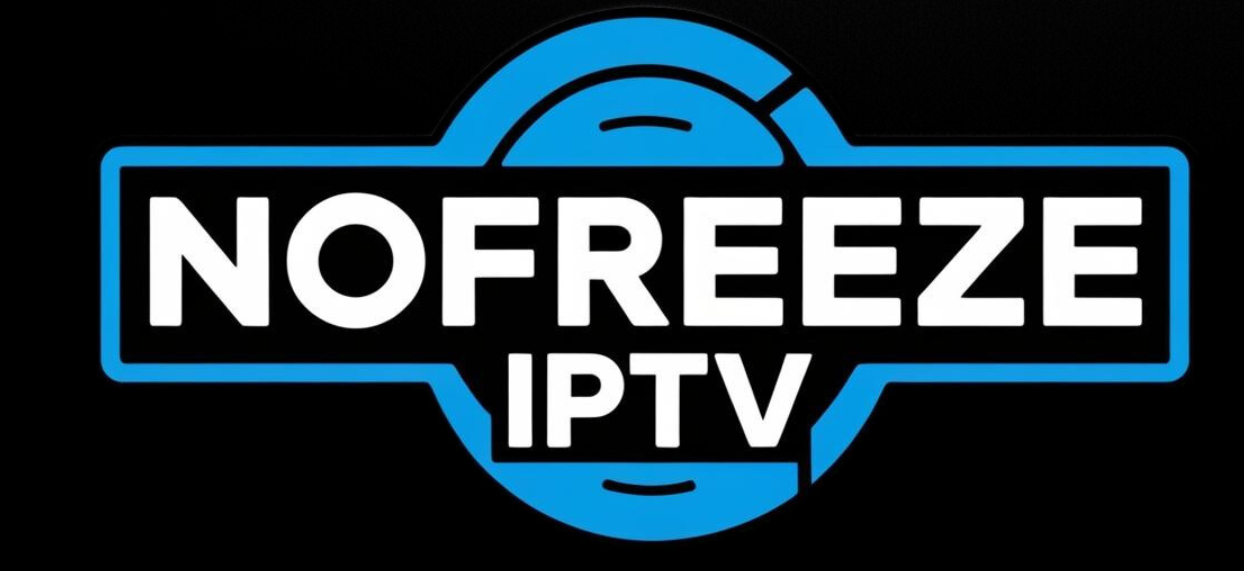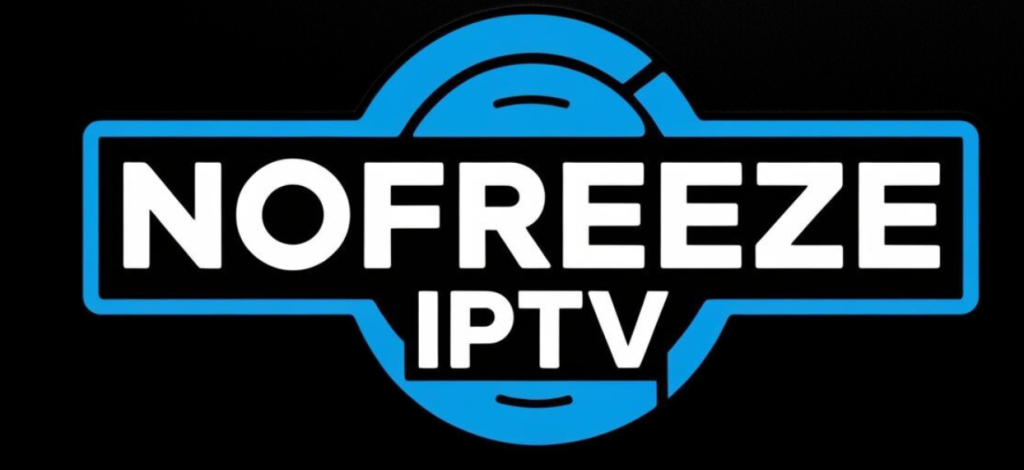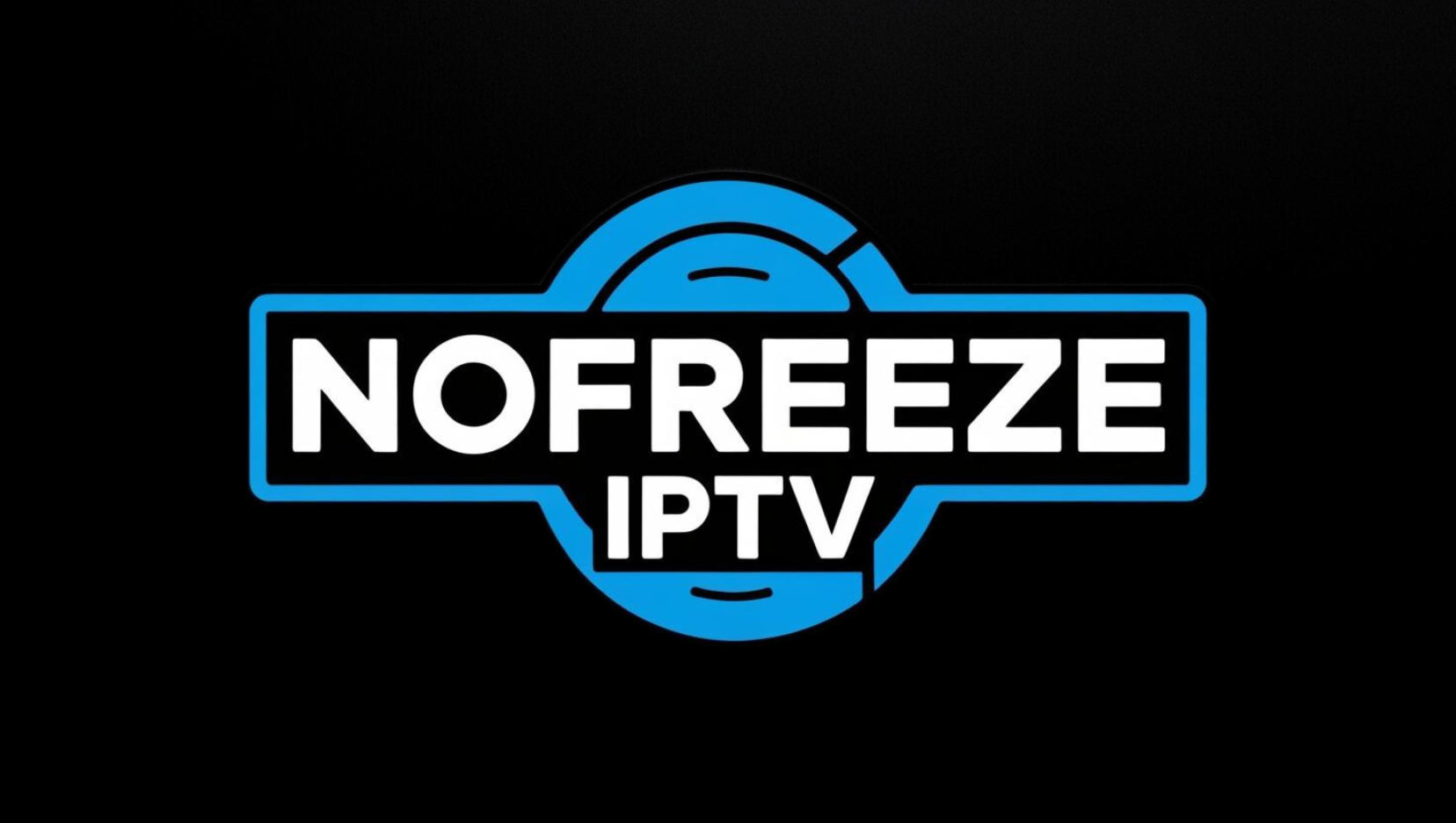Introduction too IPTV: The Future of Entertainment
In today’s fast-paced digital landscape, the way we consume entertainment is evolving at an unprecedented rate. Internet Protocol Television (IPTV) is leading this change, offering viewers a flexible, on-demand alternative to traditional cable. IPTV utilizes the internet to deliver television content, allowing subscribers to enjoy various channels, shows, adn movies directly over their internet connection. As technology advances, IPTV’s popularity continues to rise, promising rich viewing experiences tailored to individual preferences.
With the proliferation of streaming devices and smarter TVs,IPTV is truly becoming the future of entertainment. However,like all technologies,it can experience its share of technical hitches. One of the most notorious issues faced by IPTV users is freezing, which can turn an enjoyable viewing experience into a frustrating ordeal.
understanding IPTV freezing is key for both new users and seasoned viewers alike. This article explores the causes behind IPTV freezing,how to identify it,and what you can do to mitigate its effects. By preparing yourself with this information, you can ensure a smoother streaming experience.
What is IPTV? A brief Overview of Internet protocol Television
Internet Protocol Television (IPTV) is a method of delivering television programming using the internet Protocol Suite rather than traditional broadcast methods. This innovative approach allows users to access a vast array of content from various sources including live television broadcasts, video-on-demand, and multimedia content.
IPTV is different from online streaming services like Netflix or YouTube. While those applications typically rely on downloading content, IPTV streams video content in real-time. This technology enables users to watch shows and live programs as they are broadcasted, providing an experience that closely resembles traditional television.
The IPTV system consists of three main components:
- content Delivery network (CDN): A network of servers that delivers content to users.
- User Device: Smart TVs, set-top boxes, smartphones, and computers that access and display IPTV content.
- Middleware: the software that connects users to the content they wish to view, managing user interactions and subscriptions.
An IPTV service can be subscribed to through various providers, giving flexibility when choosing content preferences, be it local channels or global options. However, subscriber experience can vary substantially based on a multitude of factors.
As more people embrace IPTV as a primary viewing option, understanding its mechanics and potential issues becomes increasingly vital. This article will further examine one such common problem – IPTV freezing – and how to overcome it.
The Frustration of Freezing: A Common IPTV Issue
IPTV freezing can be a significant hurdle for users who expect seamless streaming experiences. Picture this: you’re in the heat of an action-packed scene when suddenly the screen pauses, leaving you stranded in a moment of suspense or confusion. Frustrating, right?
These interruptions can be attributed to various technical factors. While occasional buffering is a common aspect of online streaming, persistent freezing can disrupt the viewing process and lead to dissatisfaction. Users frequently enough find themselves grappling with the unpredictability of when or why their streams freeze.
The frequency and duration of these freezes can vary. For some, the freezing occurs rarely and for a short duration, while others may experience it continuously, rendering their service virtually unusable. Such inconsistencies can diminish the value of IPTV subscriptions and may lead viewers to seek alternative services.
Understanding the causes of IPTV freezing is crucial for users who want to enjoy uninterrupted viewing. Equipped with the right knowledge, users can take proactive measures that significantly reduce the occurrence of this problem.
In the following sections, we will discuss methods for identifying problems, the common culprits behind freezing issues, and actionable troubleshooting techniques that can save your evening binge-watching sessions.
Ultimately, navigating these challenges is part of the adventure of adopting new technologies. By addressing IPTV freezing head-on, viewers can become more than just passive watchers; they can be empowered participants in their own entertainment experiences.
Identifying the Symptoms: How to Recognize IPTV Freezing
The first step toward resolving freezing involves correctly identifying its symptoms. This commonly involves visual interruptions during playback, but other indicators may also suggest issues with your IPTV service. Recognizing these symptoms early can help prevent prolonged viewing disturbances.
Symptoms of IPTV freezing can include:
- Full PAUSES: At times, the video fully freezes for seconds or minutes.
- Buffering Icons: The presence of spinning loading icons can indicate the stream is struggling to keep up.
- Glitches: Sudden jumps in video or audio playback can signal issues.
- Audio Out of sync: When the sound does not match the video, it often detracts from the viewing experience.
In certain cases,freezing may be localized to specific channels or shows,suggesting that the issue lies with the content provider rather than the user’s setup. Conversely, if freezing occurs across multiple channels, it could signal broader connectivity or device issues.
IPTV users should keep track of when and how frequently enough these symptoms occur. This documentation can be helpful when troubleshooting or when reaching out for technical support from the IPTV provider.
By being proactive in identifying these signs of freezing, users can significantly enhance their ability to navigate and resolve IPTV-related disruptions effectively.
Technical Troubles: Common Causes Behind IPTV Freezing
IPTV freezing can stem from myriad technical troubles. It is essential to dissect these causes to effectively mitigate them.Here are some of the most common issues that lead to streaming interruptions:
- Network Congestion: Heavy traffic on the home network can lead to slower streaming. Multiple users streaming different content together can exacerbate this issue.
- Insufficient Bandwidth: If the internet speed does not meet the demands of the IPTV service, freezing is likely to occur. each device on a home network consumes bandwidth, and scaling back can improve streaming performance.
- Compression Artifacts: Occasionally,heavy video compression on the server side can lead to serious playback issues,resulting in freezing and poor audio quality.
- Server Issues: Content providers may face server overload, which can lead to slow data retrieval and freezing streams.
Identifying which of these issues may be affecting your IPTV can require some troubleshooting diligence. Evaluating your device,network quality,and provider performance is crucial for ensuring a smooth viewing experience.
Moreover, maintaining your equipment and staying informed about any service-related announcements from your IPTV provider can also help circumvent freezing problems before they become chronic.
By understanding these technical troubles, users can make more informed decisions when troubleshooting freezing experiences and enhancing their IPTV setup.
Network Connectivity: The Role of Your Internet Speed in IPTV Performance
Internet speed is the lifeblood of IPTV performance. Insufficient speed can lead to a myriad of streaming issues, including freezing, stuttering, and lagging. Thus,diagnosing your internet speed and ensuring that it meets the minimum requirements for IPTV is a crucial step in troubleshooting.
Most IPTV providers recommend a minimum internet speed of at least 10 Mbps for smooth streaming. However,for HD and 4K content,users should aim for even higher speeds. Below is a general guide to internet speed requirements:
| Content Type | Minimum Speed (Mbps) |
|---|---|
| SD Quality | 3-5 |
| HD Quality | 10-15 |
| 4K Quality | 25+ |
To gauge your internet speed, various online speed tests are available that measure download, upload, and ping times. Conducting these tests during peak and off-peak hours can provide insights into your network’s performance and reliability.
If your existing speed lags behind the recommended requirements, consider options such as upgrading your plan with your Internet Service Provider (ISP), optimizing your home network setup, or exploring alternative ISPs.
Network speed alone does not guarantee a perfect IPTV experience; factors such as latency and jitter can also play a significant role. Making your home network IPTV-kind is essential for an optimal streaming experience.
Server Overload: How Provider Infrastructure impacts Your streaming Experience
Server overload is another critical factor that can contribute to IPTV freezing. every IPTV provider relies on a network of servers that distribute content to their users. When these servers become overloaded – be it due to increased user demand or technical issues – it can severely impact streaming performance.
During peak viewing times, customers may find service provision to be slower, leading to buffering and freezing. Many IPTV users are unaware that the quality of their streaming experience can be heavily influenced by their providers’ server capacity and infrastructure. As demand fluctuates, it can occasionally exceed the server’s capabilities.
Here are a few signs that your freezing issues may stem from server overload:
- Freezing on Specific Channels: If specific channels are more prone to freezing while others work fine, the issue likely lies with the content server.
- Buffering During Peak Hours: Experiences of freezing during high demand periods can indicate server constraints.
- Notified Outages: If your provider communicates known outages or technical issues, it is likely you are experiencing related freezing.
To combat issues arising from server overload, users can attempt to rewatch content during non-peak hours or even reach out to their provider for insights into potential service interruptions. Total reliability of an IPTV service can vary widely based on its underlying infrastructure and performance.
By remaining vigilant and informed about your provider’s server capabilities, users can make proactive choices to enhance the overall streaming experience while relying on IPTV for entertainment.
Device Compatibility: ensuring your hardware Supports Smooth Streaming
Device compatibility can significantly influence your IPTV experience. Ensure that your hardware is capable of handling IPTV services smoothly. Devices such as smart TVs, streaming boxes, and smartphones generally have specifications that impact their performance.
When assessing whether your device can provide excellent IPTV streaming, consider the following factors:
- Processor Speed: Devices with faster processors tend to handle streaming better, leading to fewer interruptions.
- RAM: Devices with adequate RAM can manage multiple processes, reducing freezes during streaming.
- Supported Formats: Make sure your device supports the video codecs used by your IPTV provider.
Compatibility also extends to the operating system of your device – make sure to keep it updated to take advantage of performance improvements and bug fixes. Older devices may not receive updates and optimizations, leading to an inconsistent viewing experience.
To check for compatibility, consult the specifications of your device against your IPTV service’s recommendations. If necessary, consider upgrading to newer models that offer superior performance capabilities.
By ensuring your hardware is up to the task, you set the foundation for an optimal IPTV viewing experience, free from freezing interruptions.)
The impact of Wi-Fi vs. Ethernet: Choosing the right Connection for IPTV
When it comes to choosing the right connection for IPTV streaming, the choice between Wi-Fi and ethernet can have a profound impact. While both options can provide internet access, the stability and strength of the connection can vary greatly.
wired Ethernet connections generally offer more reliable and faster data transfer rates compared to wireless networks. Here’s why ethernet is often the preferred option for IPTV:
- Stability: Ethernet connections are less susceptible to interference from physical barriers and neighboring networks.
- Latency levels: Wired connections usually exhibit lower latency, which is crucial for real-time data transfer.
- Consistent speed: Unlike Wi-Fi, Ethernet provides consistent speeds that align closely with your subscribed internet plan.
Conversely,Wi-Fi offers the flexibility of mobility,which is tempting for some users who want to enjoy streaming without being tethered to a single location. However, Wi-Fi can be impacted by various factors such as signal interference, distance from the router, and network congestion.
If Wi-Fi is the only option,ensure that the router is optimized for high-speed performance and consider strategies like placing it in a central location or using Wi-Fi extenders to improve coverage.
Ultimately, an Ethernet connection is often recommended for uninterrupted IPTV streaming. Though, if you must use Wi-fi, taking proactive measures to optimize your network can still lead to a decent streaming experience.
Troubleshooting Techniques: fast Fixes for Freezing IPTV Streams
If freezing becomes a persistent challenge, several troubleshooting techniques can be employed to restore functionality to your IPTV service. Here’s a list of effective remedies:
- Restart Your Device: A simple reboot can often resolve many performance issues.
- Check for Updates: Ensure both your IPTV request and the device firmware are up to date.
- Test the Internet speed: Perform a speed test to ascertain whether your current speed meets IPTV bandwidth requirements.
- Wired Connection: If you’re on Wi-Fi, switch to a wired Ethernet connection for improved reliability.
- Reduce Network Traffic: Limit the number of devices connected to your network during streaming.
- Contact Your Provider: If all else fails, reach out to your IPTV provider for support or to report the issue.
It’s also beneficial to establish a routine of regularly checking your settings and ensuring all connections are secure. Staying proactive allows users to address freezing issues before they escalate into more significant problems.
Every IPTV user will face a unique set of challenges,but with these troubleshooting techniques on hand,you can foster a more enjoyable streaming experience.
Best Practices for Optimal IPTV Viewing: Tips for a Seamless Experience
Ensuring the best possible IPTV experience involves adopting certain best practices. Here are some simple yet effective tips to follow for optimal viewing:
- Invest in Your Internet Connection: Upgrade to a higher-speed plan if you experience consistent freezing.
- Use Quality Equipment: Invest in a good router and streaming device that supports your IPTV needs.
- Manage Your Network: Consider utilizing a dedicated network for streaming to minimize congestion.
- Regular Device Maintenance: Keep devices clean and updated for peak performance.
- Test Your Setup: Periodically conduct speed tests and troubleshoot any issues proactively.
Moreover, it’s wise to stay informed about your IPTV service provider’s policies and announcements regarding server maintenance or outages, which can affect your streaming experience.
Ultimately, being aware of and implementing these best practices can substantially reduce the chances of encountering freezing and enhance overall satisfaction with your IPTV service.
Conclusion: Navigating IPTV Freezing and Enhancing Your Streaming Journey
IPTV freezing can be an unwanted hurdle in the quest for uninterrupted entertainment, but a comprehensive understanding of its causes and effective troubleshooting techniques can enhance your streaming journey. By staying informed about the technical aspects that influence IPTV performance, you empower yourself as a user.
The path forward involves taking a proactive approach—investing in quality equipment, ensuring network reliability, and following best practices can transform the viewing experience. As IPTV continues to shape the future of television, being equipped with knowledge will ensure your experiences are seamless and enjoyable.
By navigating potential freezing issues effectively, you can embrace the exciting world of IPTV and reap the benefits of modern entertainment offerings tailored to your preferences.



